Description
Brave New World Revisited is the most visible work of Aldous Huxley. This book is a science-fiction novel that depicts Aldous Huxley in that world for the next 600 years. In fact, Huxley puts the reader in front of nowhere.
At the beginning of the book The Beautiful New World is a text by Nikolas Berdyaev:
Nowhere is much more achievable than previously thought. We are now faced with a much more daunting issue, and that is how to avoid the ultimate realization of nowhere?… Nowhere is achievable. Life goes to nowhere. Perhaps a new century has begun in which intellectuals and the educated class wish to avoid nowhere and return to a society that is not nowhere, that is, not as perfect as nowhere but freer than that.
Summary of the book Beautiful New World
As we mentioned, Aldous Huxley in this novel depicts the world in the next 600 years. A world where there is a central government that controls everything.
The book The Beautiful New World is about nowhere where the advancement of technology and science, especially genetics, has reached such a level that it is possible to make humans on a large scale and in the form of a humanization factory.
The political system that governs the world – the world government – manipulates the process of human birth, which takes place in spawning and conditioning factories around the world, with the aim of creating a class society, and as a result several groups of people leave these factories as products; Alphas, betas, gammas and epsilons. This descending classification is adjusted according to the intelligence and mental and social efficiency of “produced” human beings, and each category has a positive and negative internal division. According to this classification, alpha-positives are superior in terms of intelligence and social characteristics and are almost similar to ordinary humans.
Huxley’s hatred of the politics of the game and the industry of contemporary life, and his pessimistic view, has produced a very alarming and shocking book about the future.
In this world, revitalization and the idea of having parents, like belief in God and religion, is not only obsolete, but also considered ugly. In this created world, Ford (Henry Ford) has taken on the role of the one God and Christ at the same time. So the calendar is based on the year after Christ (AD). In the text of the book, sentences such as: as soon as Ford is satisfied, or Hazrat Ford and… can be seen a lot.
In the story of The Beautiful New World, like all such stories, there are a few different people. Here is Bernard Marx, a positive alpha psychologist who finds himself isolated from society by accidental physical anomaly. The only person Bernard considers his friend is a professor of social engineering named Helmholtz Watson, who, unlike Bernard, is very popular and successful in his job and interaction with others.
But there is another exciting part to the book. An area called the Wilderness that…
There are not many novels that want to depict the anti-ideal future in this way, and without a doubt the most famous of them is George Orwell’s 1984 book. But the book The Beautiful New World is no less important, and even critics compare it to 1984.
Another thing about the book The Beautiful New World is that Aldous Huxley publishes an article 15 years after it was written (this article is at the beginning of the book) in which he points out some important shortcomings of the book. Part of this article:
There are many flaws in the form of the work of art, and if I wanted to correct these flaws, I would have to rewrite the book.
In the same article, Huxley says about the people who run the world in the story:
Those who run a beautiful new world may not be wise in the absolute sense of the word, but they are not crazy, and their goal is not chaos but social stability. In order to achieve this stability, they are carrying out a definite and definite revolution with the scientific means of a revolution.
One final point about the book Beautiful New World is its sharp and heavy humor. In various parts of the book, there are dialogues of characters from Shakespeare’s plays, such as the plays of Hamlet, Macbeth, Romeo and Juliet, The Storm, King Lear, and Othello, that may not be understood. The translator has done his best to review these items with the reader in the form of a footnote, but if you have read these plays before reading the book, you will enjoy the book more.
Excerpts from the text of the book Beautiful New World:
An egg, an embryo, an adult – normal. But the Bukanovskized seed germinates, multiplies, divides. From eight to ninety-six buds, each bud grows to a fully formed embryo, and each embryo to a full-grown adult. Growing up ninety-six people, whereas before there was only one operation. Development.
Herein lies the secret of happiness: loving what one’s to do. All the goals of conditioning can be summed up in this: to make people interested in their inevitable social destiny.
Have you ever felt that there is something inside you that is just waiting for you to give it a chance to come out? Some kind of extra power that you do not use – you know, like the water that falls down a waterfall without spilling on the turbines?
I would rather be myself, be myself and be a tail than be someone else and be happy.
Lenina repeated: Old? The manager is old, many are old, but they are not like that anymore.
The reason is that we do not allow this to happen. We protect them against diseases. We increase and decrease our internal secretions by ourselves, to the extent necessary for staying young. We do not allow their magnesium-calcium ratio to fall below what they were in their thirties. We exchange their blood with young blood. We always keep their metabolism moving. So it is clear that they do not look like that.
Because our world is not like Othello’s world. Helicopters cannot be built without steel – neither can tragedy be built without social instability. The situation in the world is now stable. People are happy;
They get what they want and they do not want what they can not get. Their situation is good; Are safe; They never get sick; They are not afraid of death; Unaware of evil and passion and old age, which is the source of their happiness; They do not have a web in the name of their parents; They do not have a wife or a child or a lover in their bondage; They are conditioned that they can not behave inappropriately.
They do not give anything for free. There must be a ransom for happiness.
The Beautiful New World is Huxley’s most visible work. Some humor critics find this book too bitter. Huxley’s tumultuous aggression against the insane industrialism of man today shows both his hope for man and his despair of man. In a final analysis, this book should be considered optimistic because Huxley believes in its survival despite the pervasive threat that surrounds human life. On the other hand, it might be said that Huxley mocks “today” and not the future. Nakjaabad, his tomorrow is our ruin today.
The “Beautiful New World” is a descendant of Plato’s Republic, and according to one critic, Huxley makes utopia science because it will never be known again. His last word is that it is possible to live, but this kind of living is not life.
Brave New World Revisited
Set in London in 2540, the novel depicts an utopia in which genetic engineering led to the creation of human beings with predetermined characteristics, the moral system of society with the formation of world government, and the elimination of war, poverty and destruction. The whole family and reproduction have been completely peeled off, and the knowledge of psychology has been astonishingly elevated, and the sole purpose of man is to create happiness and eliminate unnecessary suffering.
In a 1958 article entitled Brave New World Revisited, Huxley recounted the events of the past 26 years, claiming that human civilization was moving much faster than he had predicted.
The novel depicts the world of two faces.
Humans are happy and healthy and have a prosperous and well-equipped life, and peace and friendship are everywhere, human needs are met quickly and deprivation and suffering are reduced to a minimum, but all at the cost of sacrificing art, knowledge and religion. .
Poverty and war have been completely eradicated and every human being feels completely happy due to his genetic characteristics, education based on psychological principles and the facilities and medicines provided by the world government, and of course these amazing achievements have been achieved by destroying the elements that point Form the core of modern human identity;
Family, culture, and philosophy are completely destroyed, all human beings speak the same language (somewhere in the Polish story it is called a dead language. Like French and German, the only remnant of the religion remains in the sanctification of Henry Ford with our word Ford). Our Ford is seen in front of Our Lord (meaning our God), art has fallen to a low and vulgar level, science is reduced to psychology and genetic engineering, the process of knowledge production is closely monitored, and many classic and sacred scientific works are read. , Literary, philosophical and religious are forbidden.
All human beings have aimed at pleasure and reduction of suffering through genetic and educational techniques, sexual intercourse is encouraged without any restrictions, and the reduction of sexual intercourse is considered an anti-value and anti-social behavior. People always regain their sense of pleasure by taking a drug called soma.
Brave New World Revisited
The phrase “Wonderful New World” is an excerpt from William Shakespeare’s play The Storm. In this play, a character named “Miranda” says:
How many goodly creatures are there here!
How beautiful mankind is! O brave new world
That has such people in’t.
In the final sections, the story consistently quotes from various Shakespearean plays such as Othello, Storm, and Hamlet – quotes from the characters in the story – especially John or “Wild” – and even in terms of dramatic events owes it to Shakespeare’s characters and stories. Is.
Advances in technology have reached the point where humans can simulate the birth process artificially and on a large scale. The world political system – the world government – which rules under the slogan of “unity, unity, stability”, manipulates the human birth process that takes place in spawning and conditioning factories around the world with the aim of creating a class society. A group of people leave these factories as a product;
Alphas, betas, gammas and epsilons. This descending classification is adjusted according to the intelligence and mental and social efficiency of “produced” human beings, and each category has a positive and negative internal division. Thus, in the classification, alpha-positives are superior in terms of intelligence and social characteristics and are almost similar to ordinary humans.
In this world, revitalization (birth from the womb) and the idea of having parents, like belief in God and religion, is not only obsolete but also ugly and shameful.
In the ruling system, “Ford” is in the place of the one Creator – God – and people swear by his name and use his name instead of God’s name in their dialect, and even the post-Ford calendar dates back to AD. Done.
By using conditioning methods, the world government ensures that the Fordy principles are up to the norm and adhere to them face to face.
Fordy Principles urges everyone to be useful to their community, to share what they have with others, to hate religion, love, morality, nature, and the book, to consider death normal, to prioritize hedonism over everything, the tail They are considered spoils and think, behave and live in a word “like children in a bottle”. Whenever life becomes unbearable, there is a healing soma whose intoxication forgets the hardships. This is how the stability of the society and continuous consumption are guaranteed.
Bernard Marx is an alpha-positive psychologist who sees himself as isolated from society because of an accidental physical disorder. The only person Bernard considers his friend is a social engineering professor named Helmholtz Watson, who, unlike Bernard, is very popular and successful in his job and interacting with others.
Bernard invites Lenina Crown, the “fat” and most beloved daughter of all men, to Malpais for a holiday. There, Bernard and Lenina meet “John” (who later turns out to be the living son of a manager who lost his beloved on a trip to the wild years ago and returned to civilization without him) and takes him and his mother to civilization (to the beautiful world). New in the words of John) return.
Bernard confronts the manager and the manager breaks the shame of the revelation. John, now known as the “Wild Mr.”, is quoted in the Hedonist Congregation, and Bernard’s charity is credited to the community. But John can not cope with the aspects of civilization, and after he sees Lenina as “insolent” in his own words, and is struck by the death of his mother – who drowns himself in Soma and dies – he begins to revolt. Bernard and Helmholtz Watson were also arrested for complicity.
The inspector deports them to the islands (where Fordy principles do not apply), but saves his life. He leaves the soul of civilization and nests in an abandoned tower and finds a worldly behavior and seeks to be cleansed of civilization by hardening himself, in this way he sometimes even flogs himself. But the people do not leave him.
Journalists and new game designers find him and find it very interesting that he whips himself and shakes his loneliness pitifully. One day, a large crowd gathers around him and asks him to perform a whipping play. John sees a woman in the middle who is like Lenina and loses control and starts whipping himself. This behavior of John arouses the others and they also attack each other.
Tomorrow morning, John, who wakes up, remembers the previous day and hangs himself out of shame and regret. The next group of visitors encounter his body.
1- Introducing the book Brave New World Revisited on YouTube
2- Introducing the book Brave New World Revisited in Aparat

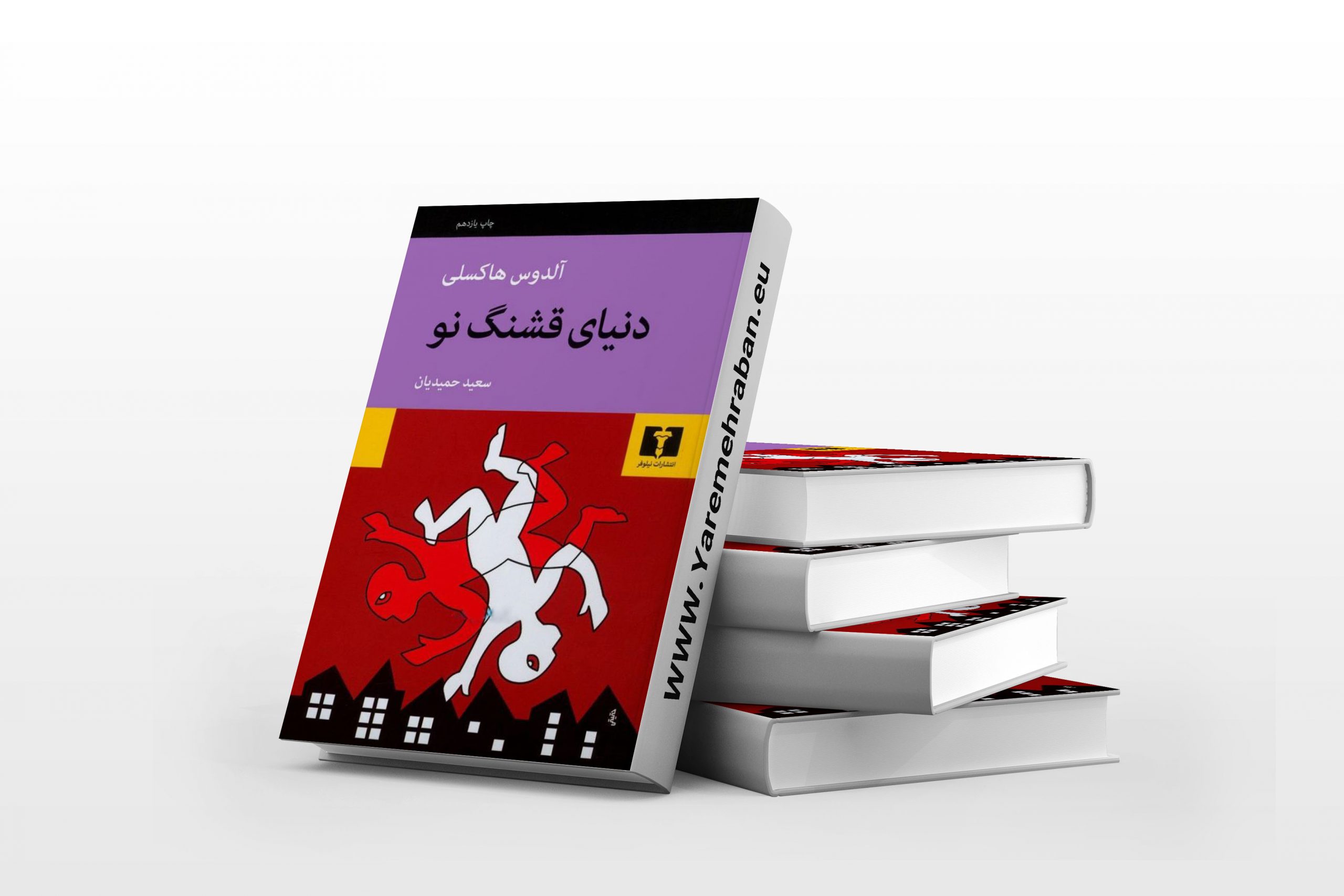


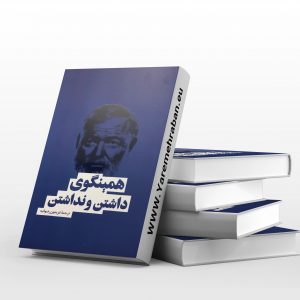




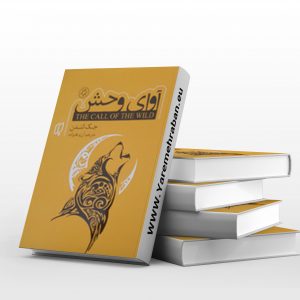
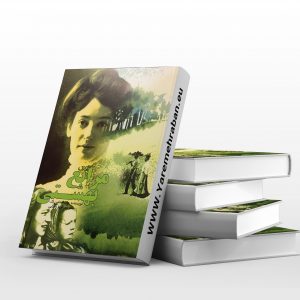


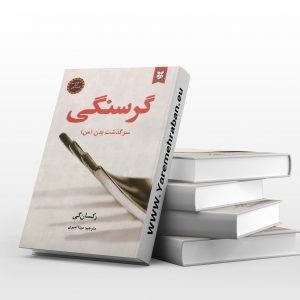
Reviews
There are no reviews yet.